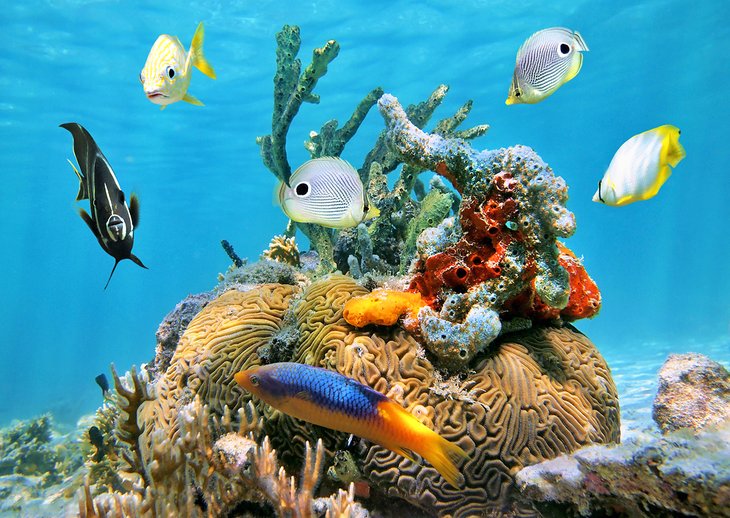
Countries throughout the world are working to save our oceans and to sustain our lives and livelihoods. The following article was posted today, June 8, 2022 to raise awareness in people throughout the world about the plight of our oceans.
70% of our planet’s surface is covered by oceans. They are not only our life source, providing protein for more than a billion people around the world, but they also play a crucial role in regulating global climate by mediating temperatures, influencing weather patterns, and acting as the world’s largest carbon sink. Moreover, oceans produce at least 50% of the planet’s oxygen, making its conservation literally a matter of life and death. Despite their importance, oceans need our support; with 90% of big fish populations depleted, and 50% of coral reefs destroyed, we are taking more from them than can be replenished. In celebration of World Oceans Day 2022 on June 8, we are talking about the various things that we can do to protect this invaluable resource.
The theme for World Oceans Day 2022 is “Revitalization: Collective Action for the Ocean” which seeks to instil in us the realisation that we need to work together to create a new balance with the ocean that no longer depletes its bounty but instead restores its vibrancy and brings it new life. Additionally, the purpose of this UN day is to inform the public of the impact of human actions on the ocean, develop a worldwide movement of citizens for the ocean, and mobilise and unite the world’s population on a project for the sustainable management of the world’s oceans.
World Oceans Day History
The idea of World Oceans Day was first proposed in 1992 at the Earth Summit in Rio de Janeiro, Brazil, to celebrate the ocean and human’s connection to the sea. After raising awareness about the crucial role the ocean plays in our lives, the UN division for ocean affairs introduced important ways people can help protect it.
5 Things We Can Do to Protect the Ocean
Opt for plastic-free alternatives
More than 80 million tonnes of plastic pieces are dumped into the ocean each year; every minute, a garbage truck full of plastic is dumped into the ocean. These plastics take hundreds of years to decompose, if they ever decompose at all. We need to demand that companies provide plastic-free alternatives and dump single-use plastics like straws, plastic cutlery, coffee cups, water bottles, plastic bags and take out containers. Alternatively, bring your own reusable containers.
Eat sustainable seafood
Ideally, we would skip meat altogether and adopt completely plant-based diets, but this is simply not feasible for many people and so if you do eat seafood, make sure that it is sustainable. It is difficult to know which fish are safe to eat, which is why these handy resources were created: Seafood Watch helps you make sustainable choices when you buy or order seafood (US only, unfortunately!), you can learn about eco-certification of seafood here and refer to these recipes that use sustainable seafood.
Avoid products that harm the ocean
There are many products that are directly linked to harming endangered or threatened species, unsustainable fishing methods and pollution. You can avoid cosmetics that contain shark squalene, jewellery made of coral or sea turtle shell, souvenir shells of conchs, nautiluses and other animals, and single-use plastics like straws and water bottles that can end up in our oceans. These products support unsustainable fishing and threaten important species and ecosystems.

Adopt ocean-friendly habits
There are plenty of things that we can do in our daily lives that will ease the negative impacts of our activities and climate change on the ocean. We can conserve water, use less energy, reduce pollutants and volunteer our time to beach clean-ups. If everyone made incremental changes, the end result would be a much cleaner and healthier ocean.
Support Organisations Working to Protect the Ocean
Many institutes and organisations are working to protect ocean habitats and marine wildlife. Find one that resonates with you and consider giving financial support or volunteering for hands-on work or advocacy. If you live near the coast, join up with a local branch or group and get involved in projects close to home.
On World Oceans Day 2022, let us be reminded of the importance of the ocean and the effects that an unhealthy ocean will have on us. We need to reconnect with the ocean in a sustainable way to ensure that its benefits can be enjoyed for generations to come.
Source: Earth.org




